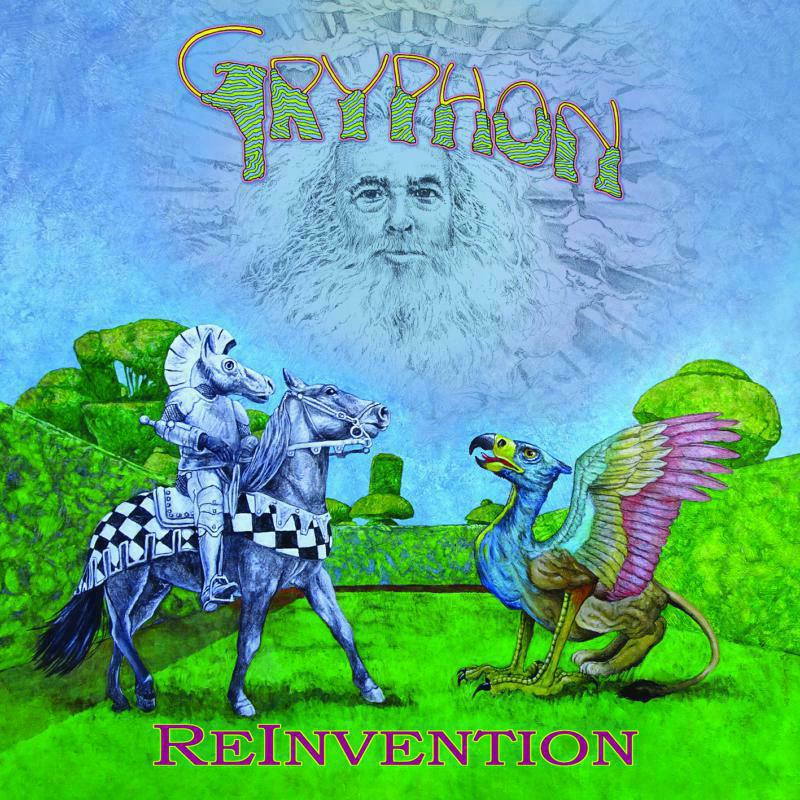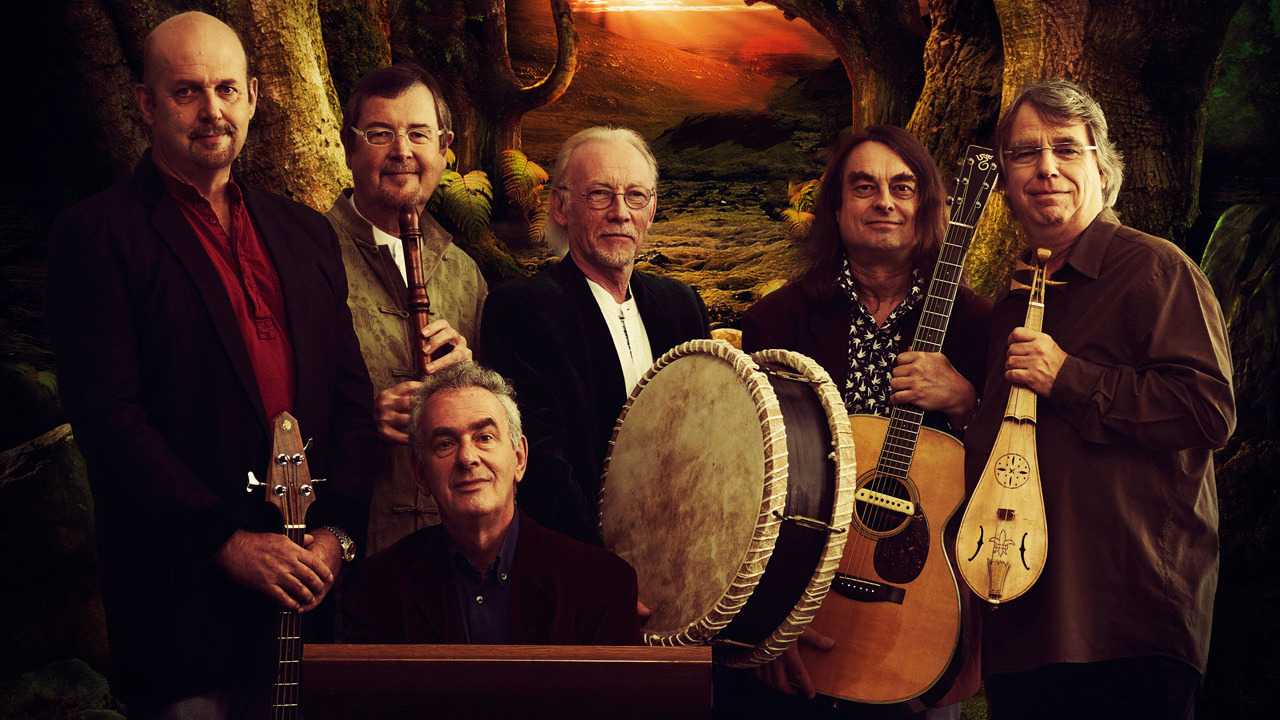Even in the eclectic, diverse era of the 1970s, Gryphon were unusual. Their medieval musical fascinations gave albums such as Midnight Mushrumps and Red Queen To Gryphon Three a unique artistic outlook. The band also made history by being the first to appear on BBC Radios 1, 2, 3 and 4 in the same week.
However, Gryphon split up in 1977, after releasing five albums. In 2009, original members Richard Harvey, Graeme Taylor, Dave Oberlé and Brian Gulland reunited. Subsequently, they performed spasmodic concerts to great acclaim. But in 2016, Harvey (an award-winning composer of music for films and TV) left the band. Undeterred, Gryphon brought in Graham Preskett, Andy Findon and Rory McFarlane (since replaced by Rob Levy) and released Reinvention, their first album in 41 years. As drummer Dave Oberlé explained, it was a new start for an old beast.
We caught up with them in November 2018, for issue 92 of Prog magazine.
How tough was it to record a new album after so long?
Dave Oberlé: It was definitely hard, which is why it took ages to get going. We’d been discussing doing an album for a while, but only started to take it seriously about 18 months ago. That’s when the composers in the band began to write and collate ideas. Once we had that type of momentum, everything clicked into gear and the green light was pressed. Things went from there.
Did you try to maintain the style of your 70s albums?
We were very aware of the importance of remaining true to our roots. Gryphon were always pretty unique, and we never wanted to lose that spirit. However there was also an intention to make us relevant to what’s happening in the modern era. Striking the balance between our 1970s sound and the need to be contemporary was vital.
You called the album Reinvention. Is that the way you view Gryphon in 2018?
It certainly is. After 41 years away, we didn’t want to come back and sound like we belonged in the past. There was a need to reinvent Gryphon. It’s different for our peers who kept going, because they had continuity. But we were coming back from the grave after a long absence. That’s why the new album was crucial for us to establish ourselves. What I think we’ve done is make ourselves a lot proggier, but never forgot what had worked in the 1970s.
Do you regard the new members of the band as equal partners, or hired hands?
There’s no hierarchy, and the new guys are very much a part of what we are doing. Everyone has an equal say in decisions. And most of the time we all agree on where things should be heading. Sometimes there are disagreements, but in that case we go with the majority. This is a democracy. And I have to say that I regard what we have now as the best line-up the band have ever had. I think that sense of everybody belonging is reflected in what you hear on the album.
What prompted you to reform in 2009 after such a lengthy absence?
Well, the prompting came from Jonathan Davie, who had been our bassist when we split up in 1997. So we all got together for three or four weeks’ rehearsal just to do one gig, to see whether there was any interest in the band. But we did very little after that for several years. You see, we all had other stuff going on in our lives. In 2015, things finally became more crystallised and we’ve become a real band again.

Do you regret splitting up in 1977?
Not at all. You see, in 1977 the whole punk thing came along and the music business changed. Unless you were a very well established band, survival was very difficult. We never had the level of success of, say, Yes or Genesis. Besides, we had switched labels to Harvest for the Treason album [1977], and what they pushed to do was to get a more commercial sound, but we were never that sort of band. We could never have hit singles. So, even if we hadn’t decided to split up when we did, I believe Gryphon would have ended up back at square one, and the end was nigh anyway.
How much of a loss was it when Richard Harvey quit?
It was a massive blow. Any band losing their main instrumentalist would face a similarly huge problem. But we had to accept that Richard had other priorities. He does a lot of work with Hans Zimmer, one of the most famous composers in the world, as well as his own music. Besides, he also lives six months a year in Thailand, which made things difficult. But we were so lucky to find Andy Findon as his replacement. He is a brilliant musician in his own right.
Do you feel that you are appealing to a young audience as well as the original fans?
That’s the great thing. We seem to have picked up a lot of male fans in the 15-24 year old bracket, which is very encouraging. Of course, we have the silver surfers, but these young fans have gotten into us through discovering our albums in their dad’s record collection. That comes from vinyl being so popular again. We had one comment on our Facebook page which just said: “Best Dad Band ever!” I love it. These young people are helping to drive the sales of Reinvention. Honestly, it’s outstripped anything we could have dreamt of doing. And we’re looking forward to touring across the UK in 2019.
What would say was the high point for the band back in the 1970s?
That’s easy. It was when we played Madison Square Garden in 1974 supporting Yes. We came back onstage to take a bow after our set had finished, and as I looked up, I could see this neon sign flashing around the venue which said ‘New York Welcomes Gryphon.’ At that point, I felt that we’d made it!
This article originally appeared in issue 92 of Prog Magazine.

